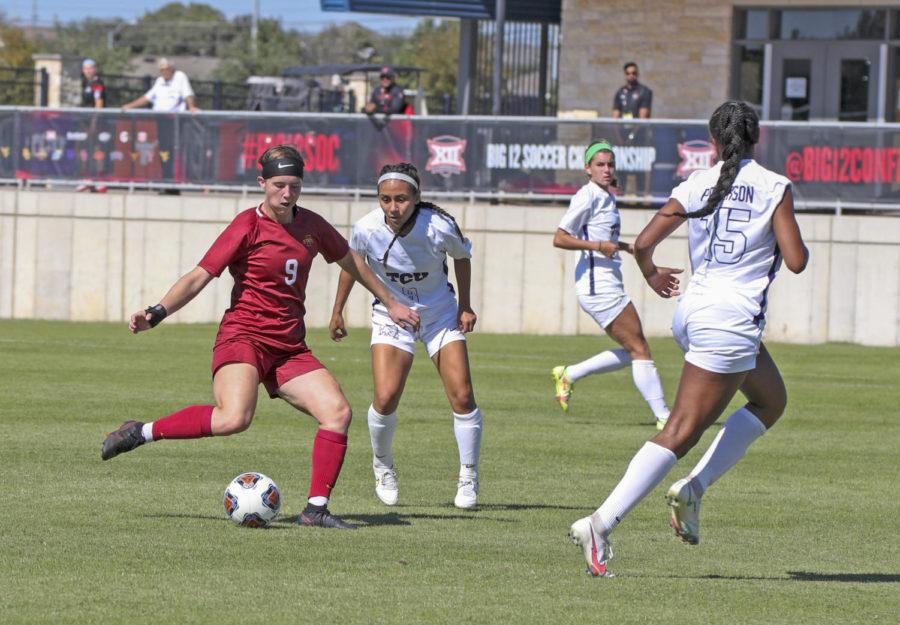U.S. women’s soccer team receives equal pay and inspires female athletes
Iowa State students said they hope the decision to pay the U.S. women’s soccer team equally to the men’s team will create a ripple effect of equality in the sports world.
March 8, 2022
Last week, the U.S. women’s soccer team won their lawsuit to receive equal pay to the U.S. men’s soccer team. According to ESPN, they will now earn $22 million after fighting for this since March 2016.
Since this new equality is at such a high and public level, it has inspired and relieved many female athletes, including those at Iowa State.
“This is a starting point and paves the way for future generations of female soccer players and female athletes,” Kenady Adams, an Iowa State senior in kinesiology and health and soccer player, said. “It was also so inspiring to see how the females advocated for equal pay. This shows females that they have the power to do anything they believe in.”
Before this lawsuit was won, the U.S. women’s soccer team was making less than half of the U.S. men’s soccer team, even though they brought in $1.9 million more per game, according to The Washington Post.
“I have been following the U.S. women’s soccer team’s fight for equal pay for years,” said Georgia Wimmer, an Iowa State junior in materials engineering and soccer player. “I think it’s incredibly disappointing that it has taken so long for them to receive equal pay when the women’s team won multiple world titles, had a larger fan base and were overall more successful than the men.”
The fight for equal pay started in 2016 when five players, including Hope Solo and Megan Rapinoe, filed a payment complaint. It advanced in 2019 when 28 players filed a gender discrimination lawsuit. The pay gap remained even when the women won the World Cup in 2019, while the men have not won since 1994, according to Fox Sports.
“Though long overdue, this change is a big step in the right direction for female athletes,” Wimmer said. “It is empowering to us all, no matter how old or what sport, to know that the work we put into the sport we love receives just as much recognition as the men.”
The gender pay gap in sports is no new concept, as Adelphi University said that men can make an average of 63 percent more than women playing the same sport, but they can make anywhere from 15 percent to 100 percent more.
According to Wimmer, payment is not the only discrimination female athletes face. She said she feels the time and effort women put into sports is often seen as a hobby and not a lifestyle, which she said is something most people would not say about male athletes. Being negatively compared to the men’s team is something she and her teammates have experienced throughout their athletic careers at Iowa State.
“I hope it is a ripple effect and shows other female athletes that they are valued,” Adams said. “I also hope it gives females the confidence to advocate for more equality and respect.”

















